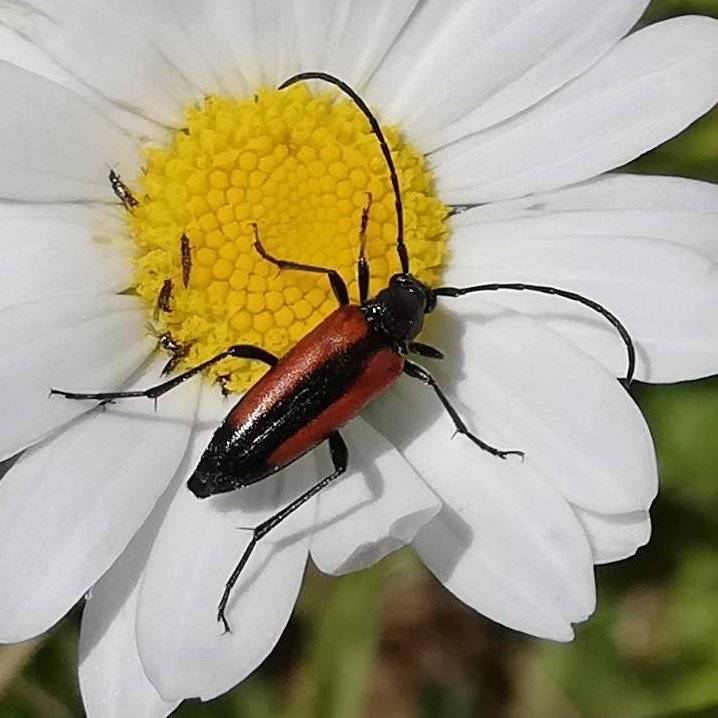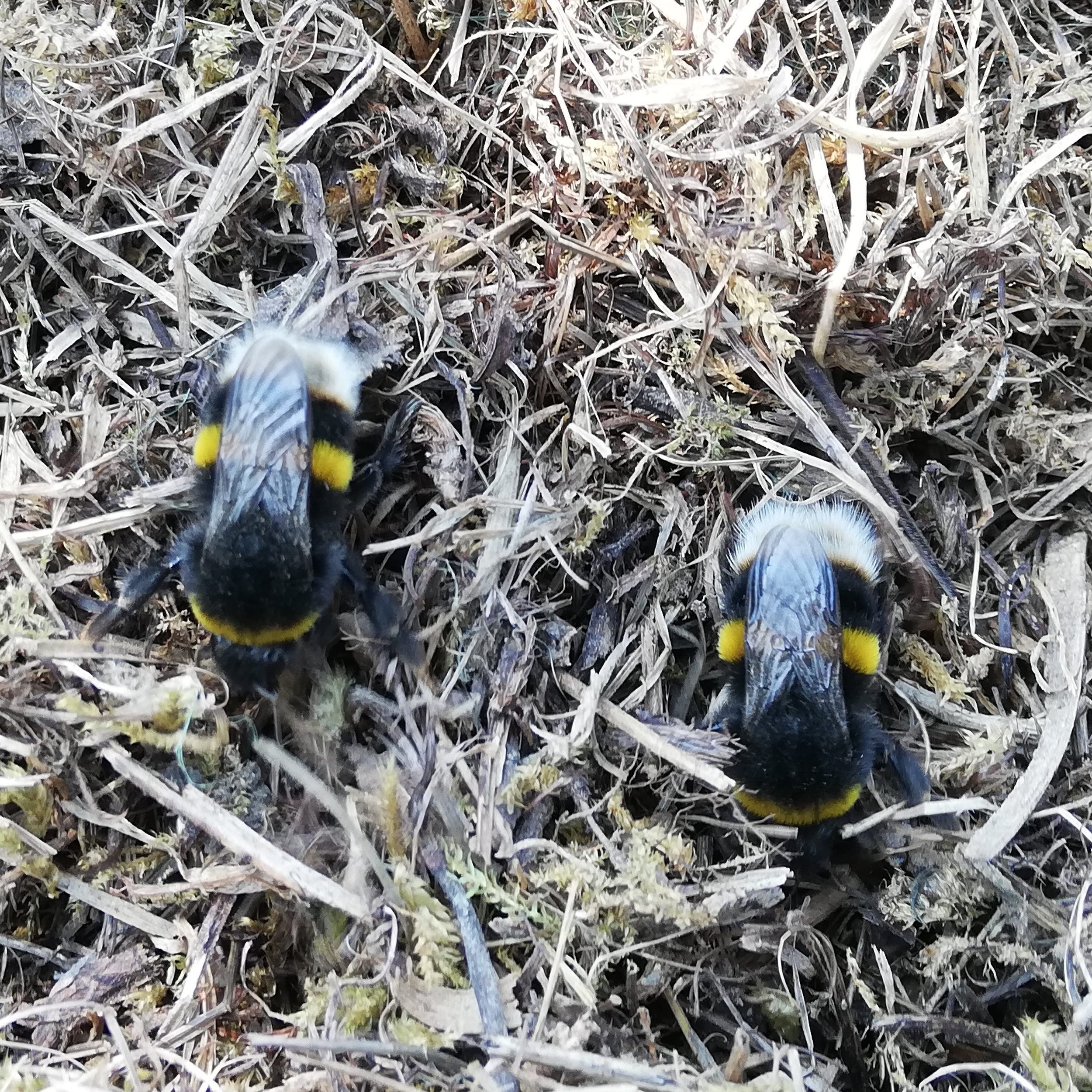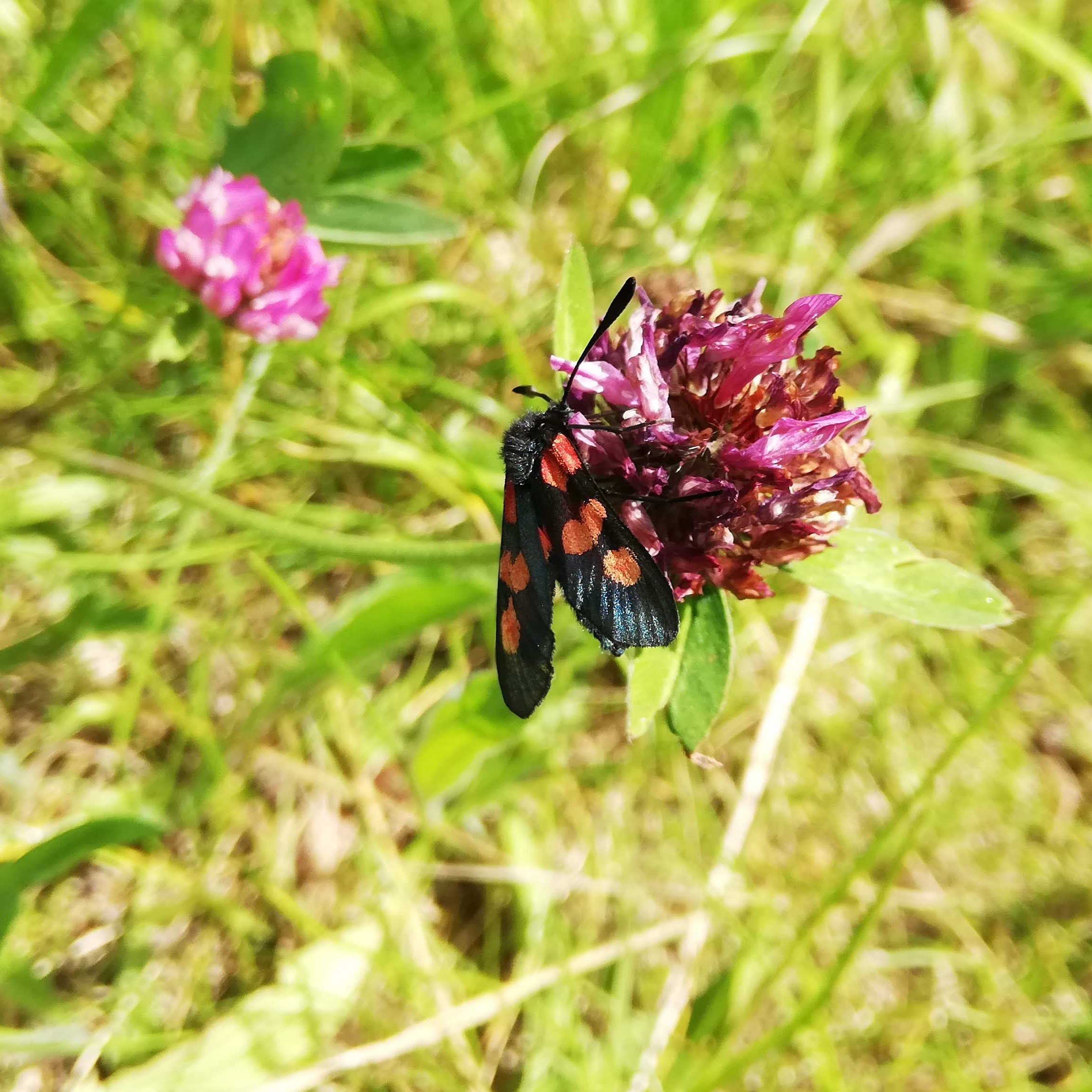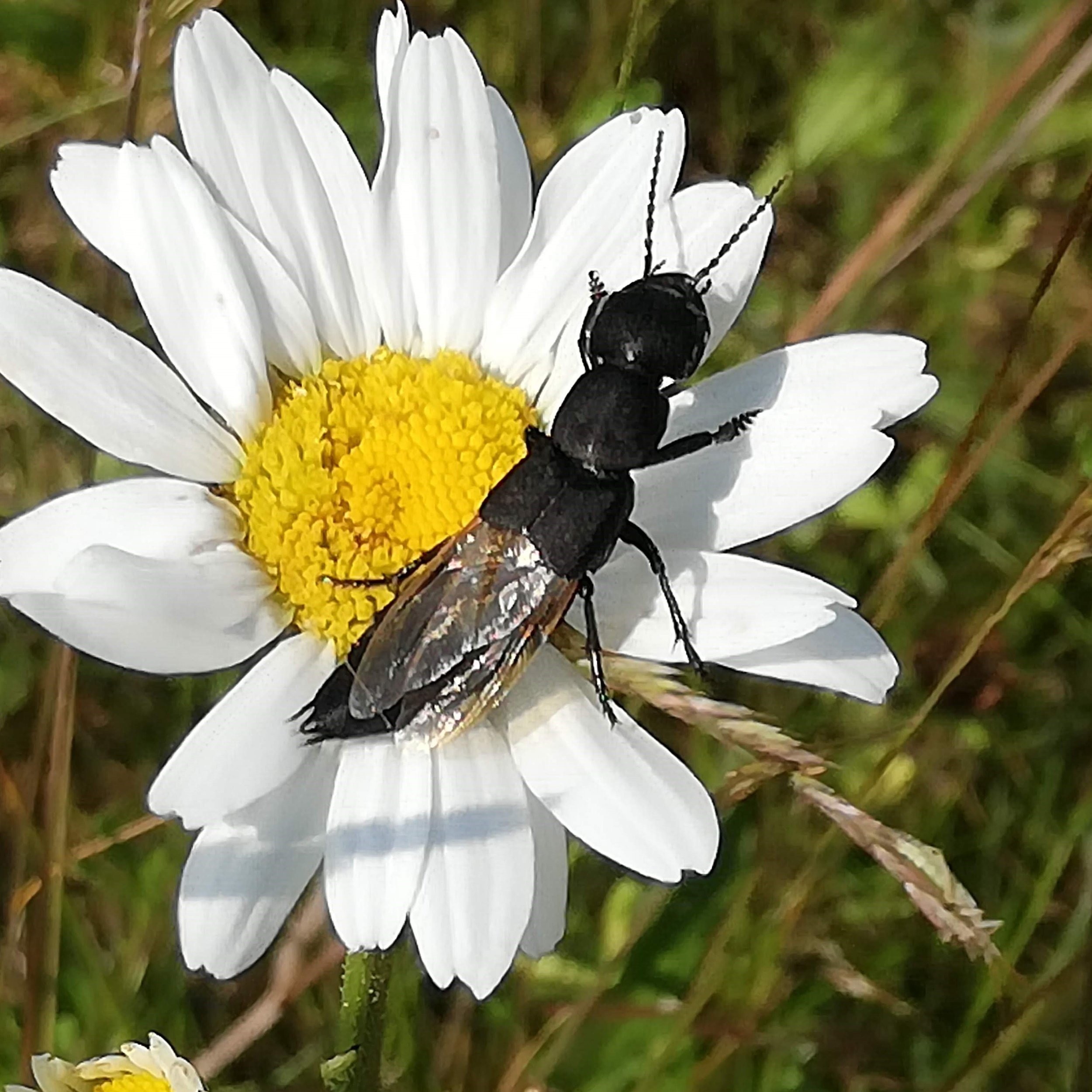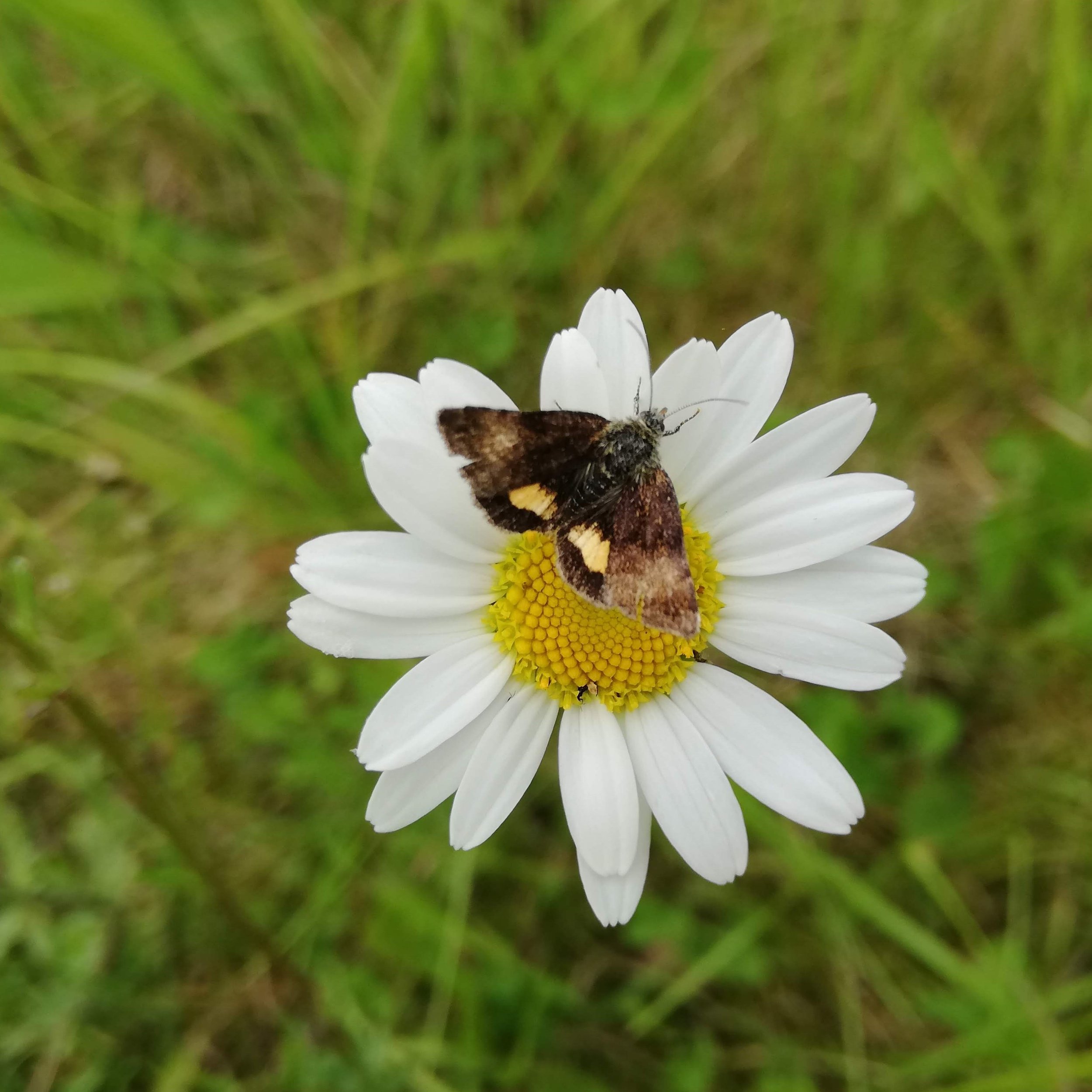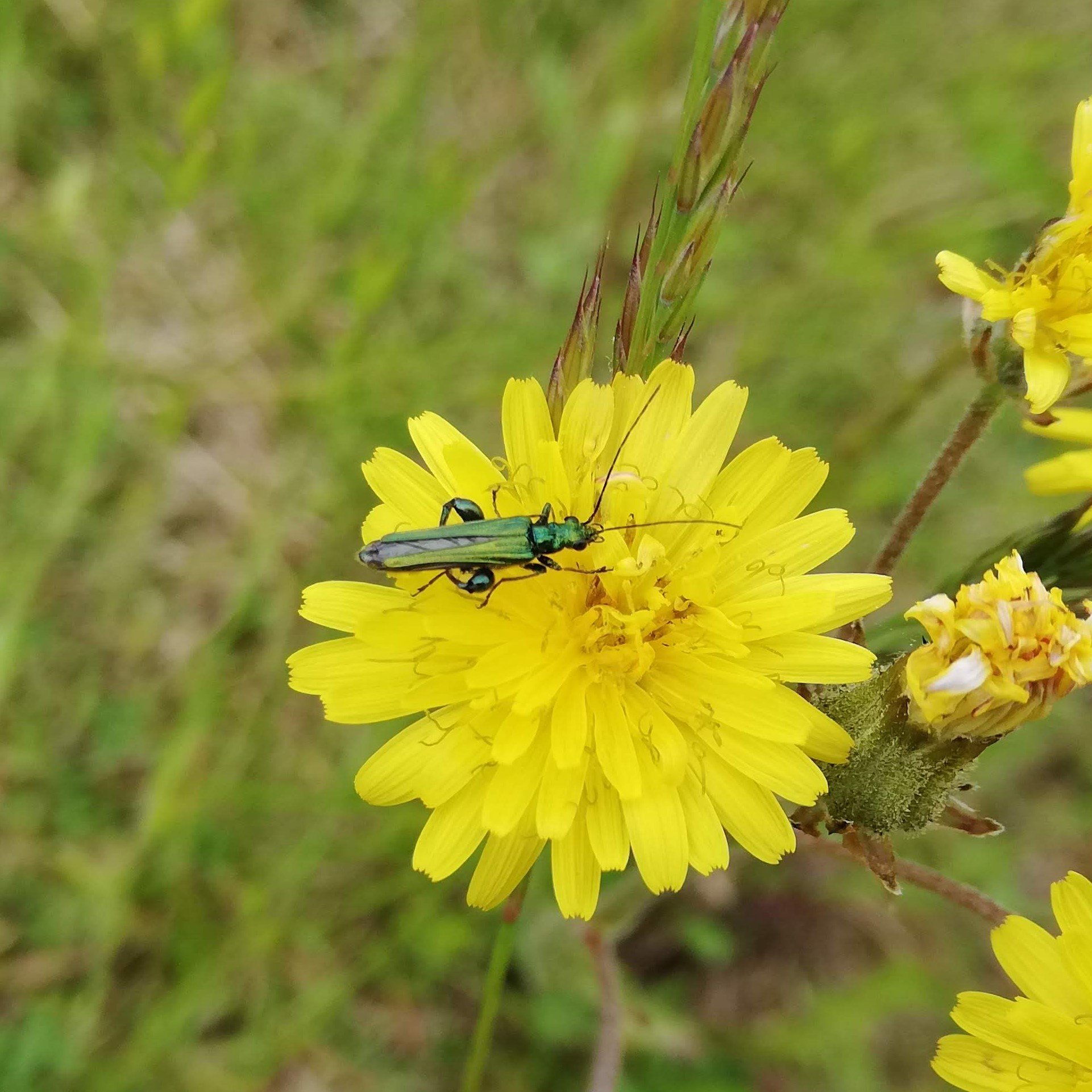Insect Week 2023
June 19th to 25th 2023 is Insect Week!
While the word ‘insect’ is often applied to any and all small invertebrate animals, the biological definition of insect only includes creatures which have six legs, three body segments, compound eyes, and a pair of antennae. Many also have one or two pairs of wings. So this does not include woodlice, spiders, ticks, centipedes, millipedes, slugs, or snails… but does include bees, wasps, ants, butterflies, moths, beetles, fleas, flies, and more. In the UK we have an estimated 27,000 species of insect, and globally around one million species have been recorded, with millions more thought to be as yet undiscovered.
Many insects are often seen as pests and killed, or disregarded and ignored, but they are incredibly important, and fascinating. Simply put, they (and other invertebrates) are the keystone of all life on earth - without them, the world’s ecosystems would collapse. They are an important food source for birds, mammals (including humans), reptiles, amphibians, and fish; pollinate flowering plants which provide food, habitat, and resources for us and other animals; disperse seeds so plants can spread without relying on wind; help maintain population sizes as predators and parasites; and keep the environment clean and the nutrient cycle moving by consuming and helping to decompose dung and dead plants and animals.
Insects are also fascinating! Have a quick read of ‘25 cool facts about bugs!’ and ‘10 weird facts about insects’.
But they are in serious decline. Habitat loss and overuse of pesticides mean insects face extinction at a higher rate than mammals. A 2021 study by charity Buglife estimated that populations of flying insects in the UK have declined by 60% over just the last 20 years. So what can you do to help?
If you have a garden, let at least some of the grass grow long; ideally leave some areas uncut for the entire year.
Avoid using insecticides and herbicides where possible.
Allow some so-called ‘weeds’ to grow - dandelions, thistles, knapweed, bindweed, and nettles are all favourite food plants for various insects.
Plant a range of flowers like sunflowers, crocuses, and borage, including highly-scented ones like lavender, honeysuckle, and jasmine, as many pollinators are drawn by scent, including night-flying moths). Climbers like ivy are also great.
Encourage ladybirds (which love eating aphids!) by planting chives, dill, marigold, and yarrow.
Have a range of habitats and microclimates within your green space - short grass, long grass, bare earth, dense vegetation, damp areas, dry areas, a small pond if possible.
Make (or buy) bug hotels which provide nesting and hibernation spaces for insects.
Make a wood pile or leaf pile, and leave deadwood to decompose.
See if your garden or community space can be added to a ‘B-Line’ insect pathway running through your local area.
Put mesh screens over windows and doors to prevent flying insects getting indoors, avoiding them becoming trapped and being killed as pests or dying from exhaustion or starvation.
Go bug-hunting, by yourself or with friends or family. It’s a great way to encourage kids to take an interest in the natural world around them, but is fun for all ages.
Every little thing you can do helps.
If you or anyone you know would like to have a go at bug-hunting and get a close-up look at some of the insects we have in Harmony Woods, we are holding a Bioblitz on Saturday 8th July, and an invertebrate collection session (aka bug hunt) on Saturday 29th July. See our Events Calendar for details.
Above, just some of the insect species we have living in Harmony Woods:
Black-striped longhorn beetle (Stenurella melanura)
White-tailed bumblebee (Bombus lucorum)
Six-spot burnet moth (Zygaena filipendulae)
Devil’s coach horse beetle (Staphylinus olens)
Small yellow underwing moth (Panemeria tenebrata)
Swollen-legged beetle (Oedemera nobilis)
All photos by Laura Morrell.
See also:
Royal Entomological Society - Understanding Insects
Butterfly Conservation Trust - Identify a butterfly
Butterfly Conservation Trust - Moths
Bees, Wasps & Ants Recording Society
Request a Take Action for Insects guide form The Wildlife Trusts
